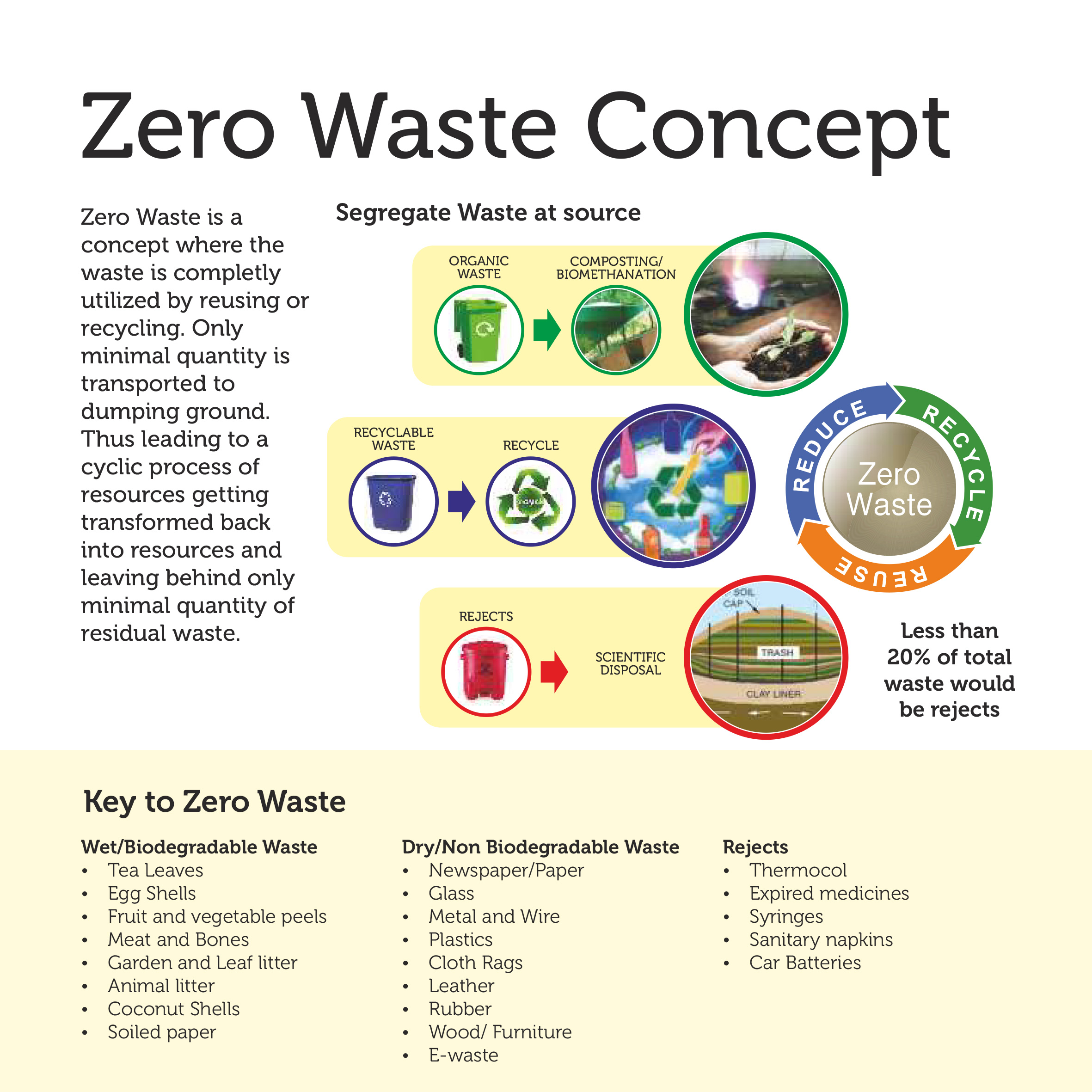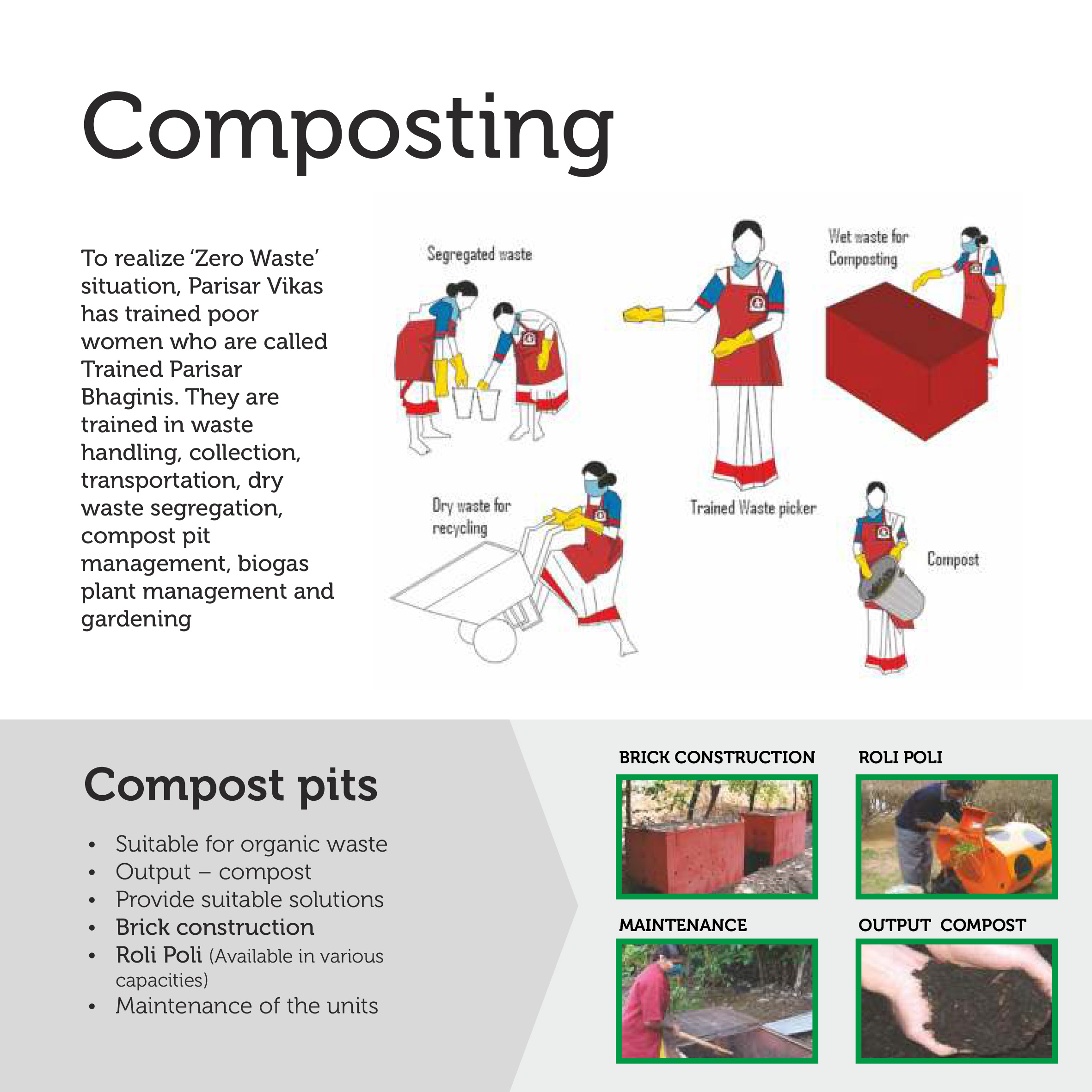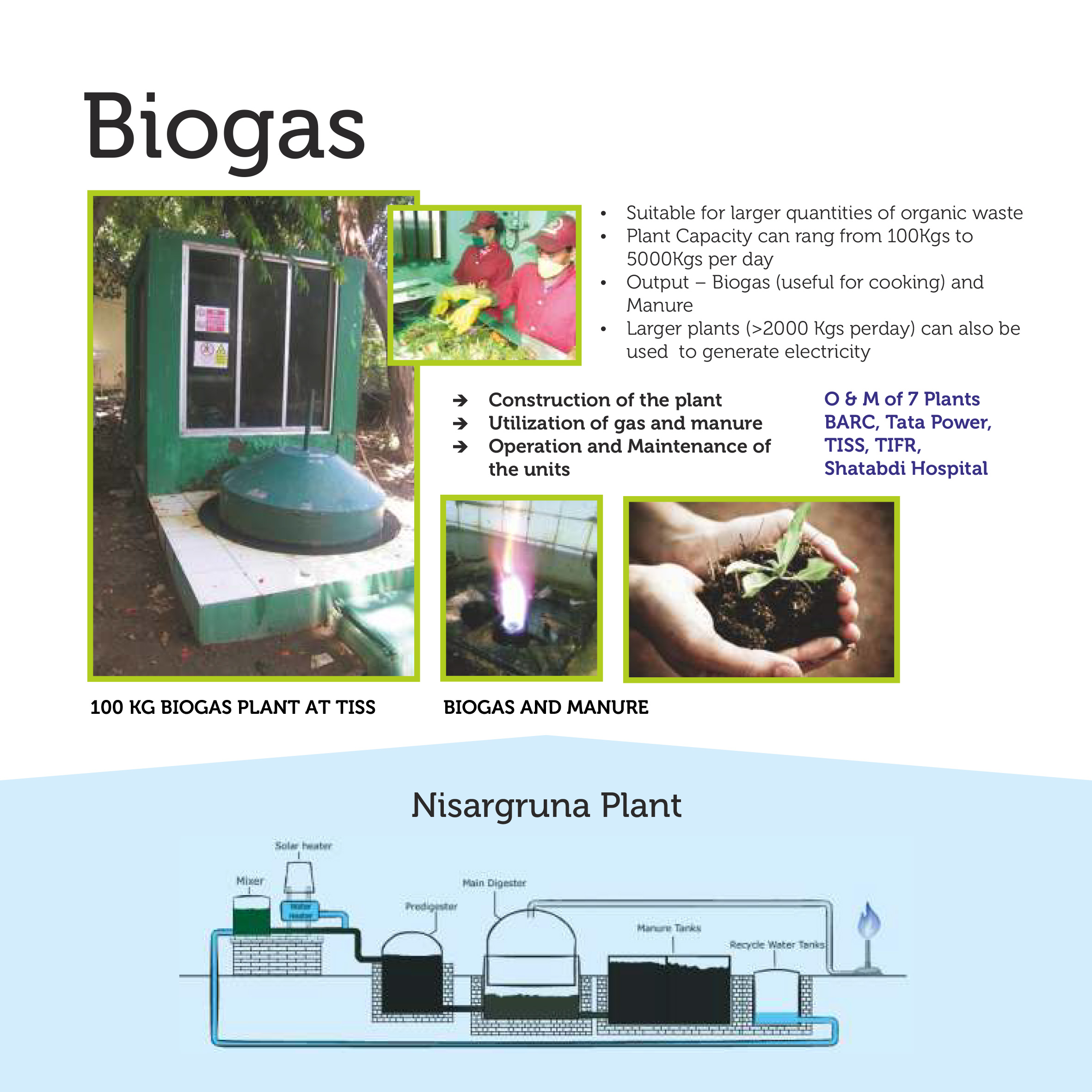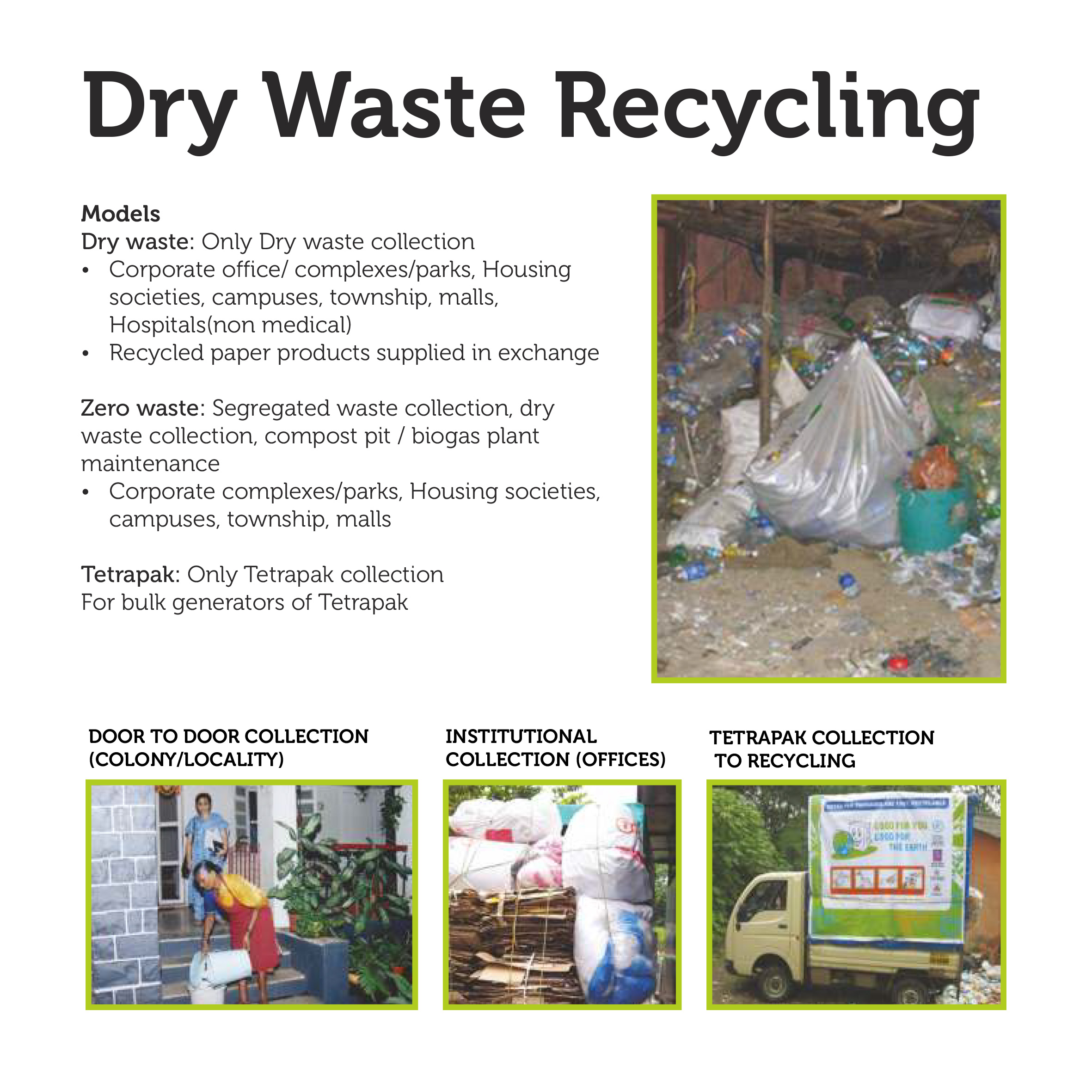 Waste Pickers in Mumbai
Waste Pickers in Mumbai
The waste pickers in Mumbai came from famine stricken areas of Maharashtra, Karnataka and Tamil Nadu. They lived below poverty line and were totally deprived, devastated, and living in desperate conditions. These women were a formidable part of unorganized workers. Almost all of them come from dalit communities, were illiterate and single parents.
SMS conducted a survey of these women and the result revealed the depth of their problems like child marriage, illiteracy, numerous health issues, indebtedness, cheating and exploitation. Most of these women were either widowed, deserted, victims of alcoholism. Drop-out of girls from schools was very high and dadagiri were their main concerns.
The Parisar Vikas program was launched in the year 1998 by the Stree Mukti Sanghatana with the cooperation of the Municipal Corporation of Greater Mumbai (MCGM). The program aims to address the problems of waste management through awareness, training and self reliance.
Core Functions
Financial assistance for education, health, housing, family functions and management of scarp shops for and by the waste pickers. The women are organized into SHGs and are affiliated with a federation.
Our Intervention
- Recognition in the form of ID cards for the waste pickers from BMC
- Support for children’s education
- Formation of self help groups (SHGs)
- Health checkups and medical facilities
- Imparting alternate skills training like composting, bio-methanation, gardening and leadership training
- Formation of co-operatives to facilitate work opportunity
Our Vision
- Decentralized Waste Management System
- Low cost
- Energy Efficient
- Labour Friendly
- High resource recovery
- Environmentally sound
- Sustainable
Our Strategy
Step 1: Awareness
Step 2: Waste Audit
Step 3: Meeting with stakeholders and offer Long Term / Short term solutions
Step 4: Training
Step 5: Implementation
Benefits for waste pickers and their families
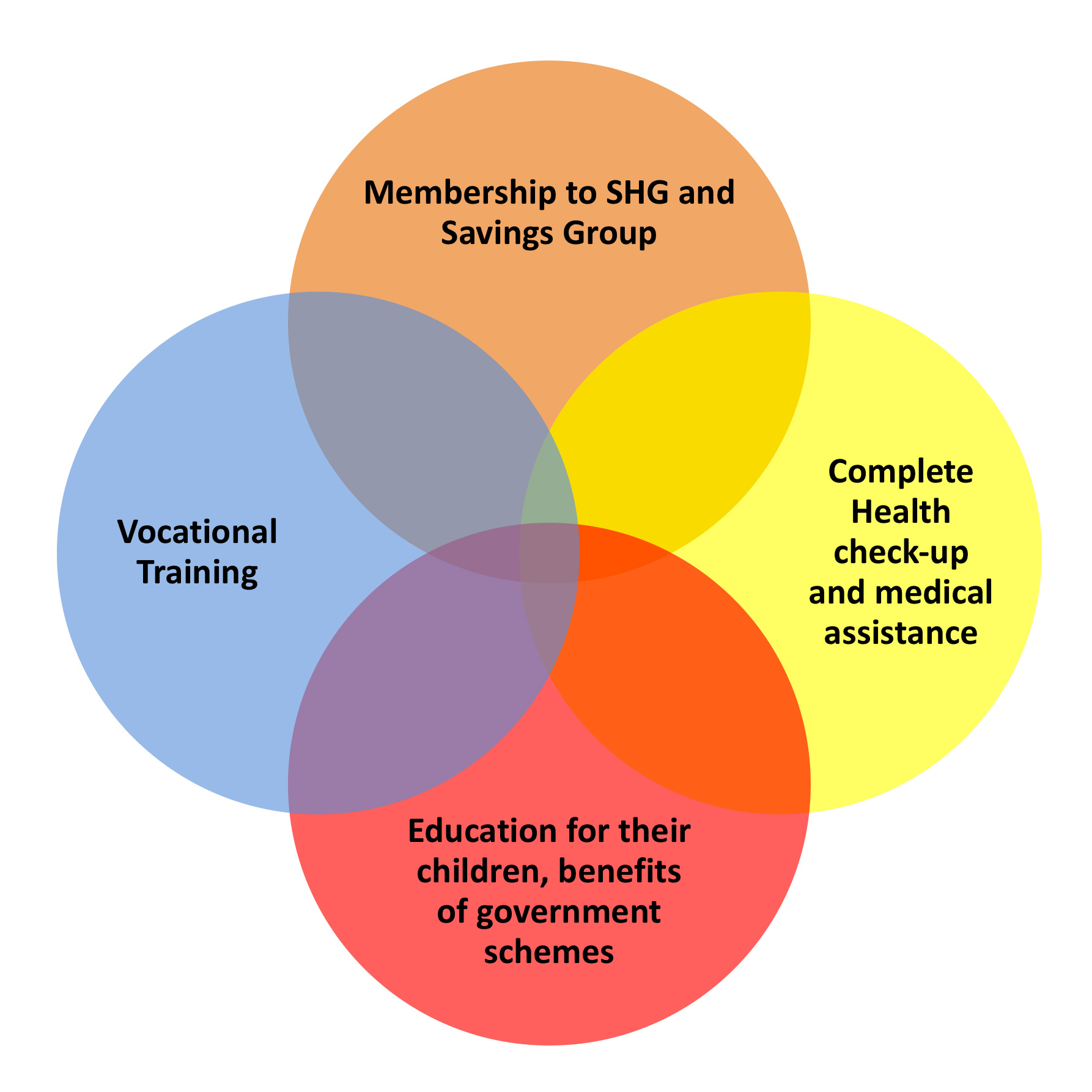
Recognition
Over the years, the Municipal Corporation of Greater Mumbai (MCGM) and Navi Mumbai Mahanagar Palika (NMMC) have recognized the federations affiliated with Stree Mukti Sanghatana as community development societies. These include:
- PBVS: Parisar Bhagini Vikas Sangh (recognized by MCGM)
- PSVS: Parisar Sakhi Vikas Sangh (recognized by NMMC)
- PBVSS: Parisar Bhagini Vikas Seva Sangh
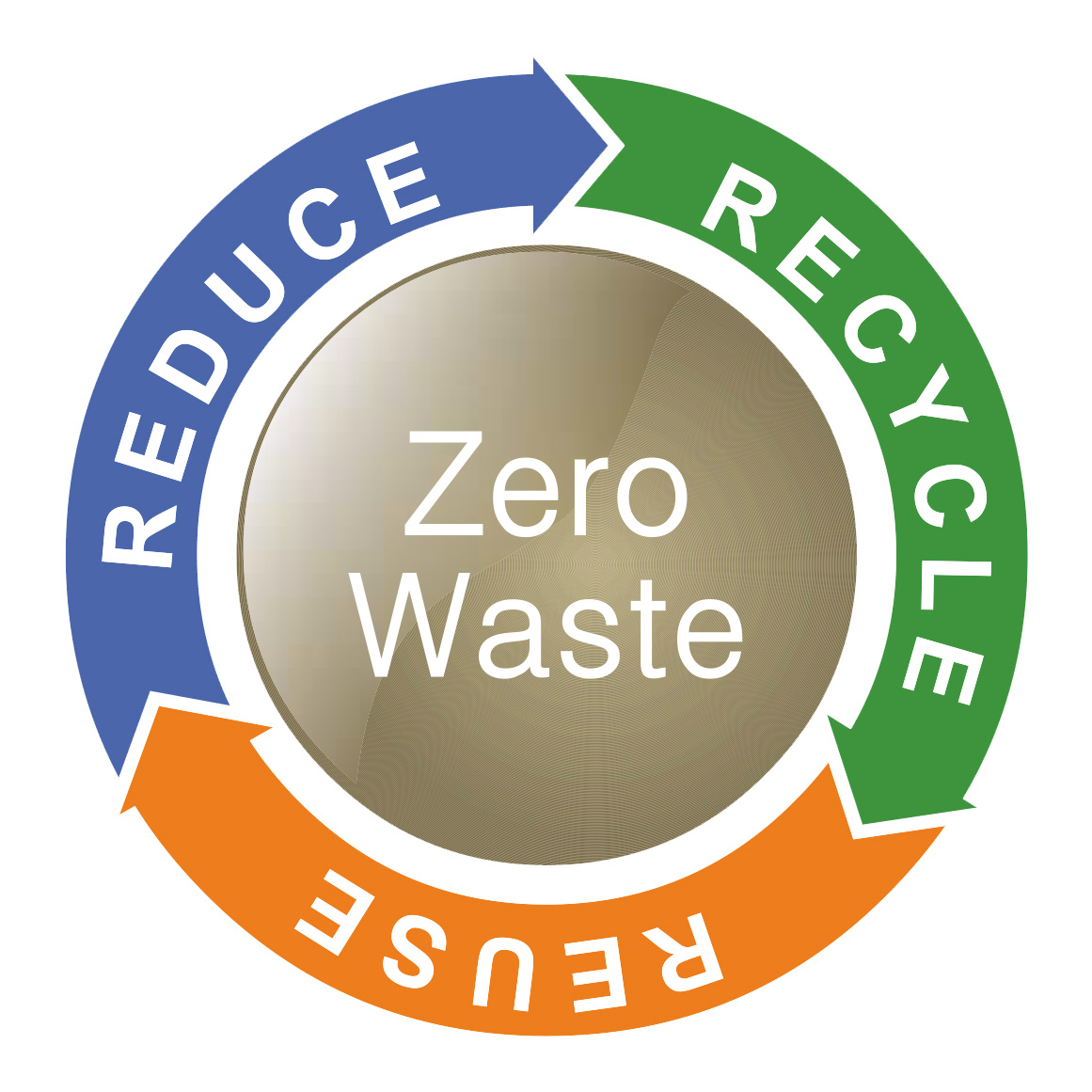
Zero Waste Management
We owe it to ourselves and to our next generation a clean, green, healthy earth and for that zero waste management is the only solution.
Our concrete steps today will ensure
- Valuable recyclable materials (Dry and Wet) are not wasted at the dumping grounds
- Conversion of wet waste into compost and bio-gas , nature’s wealth restored
- Saving of transport cost and tipping fee for Local Self Governments.
- Saving of emissions due to transport, cleaner roads, lesser pollution
Zero waste management begins with us. It is imperative that we change our attitude from “out of sight, out of mind” to being responsible for the waste around us. It requires minimum effort to move from a “not in my backyard” to “not out of my backyard” mindset.
Zero Waste Management Process
The process of zero waste management includes 4 very simple steps
Step 1: Segregation at source
Step 2: Collection
Step 3: Recycling
Step 4: Disposal of hazardous waste
Methodology
Our methodology for waste disposal when we interact with housing societies, industries, hospitals, colleges etc includes
- Waste Audit
- Proposal Submission
- Installation
- Training and Awareness
- Beginning of Operations
- Supervision
Depending on the amount of waste generated, we offer our solutions
Products
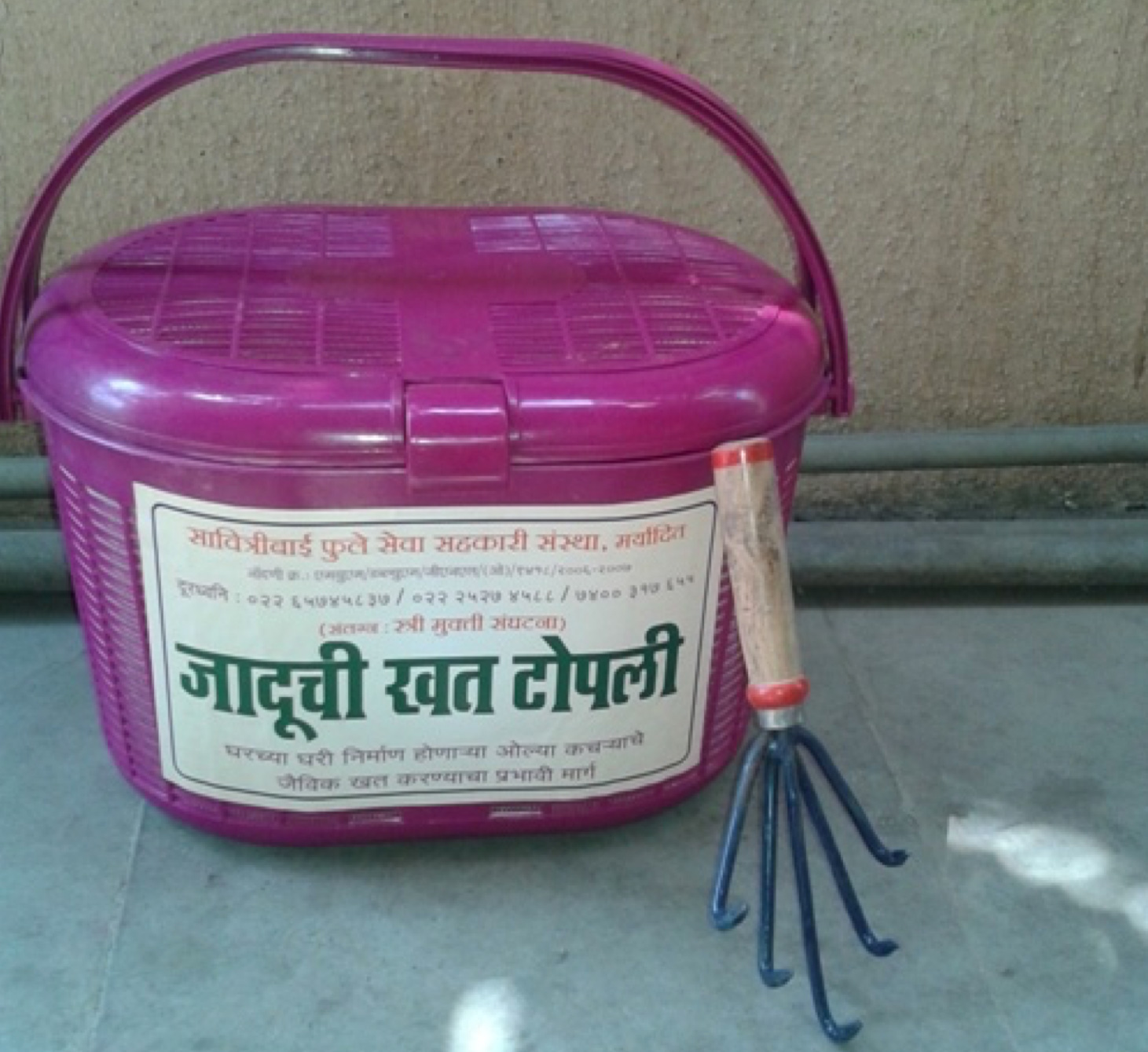
MAGIC BASKET
INDIVIDUAL FAMILIES
The magic basket is ideal for families with 1 – 5 members, where the waste generated is up to 1 kg.
This is a plastic netted basket with a rake. Wet waste created by a family can be converted into compost in the house itself using this basket. Keep the basket in a corner where there is enough ventilation, but out of direct sunlight. It takes about 8-10 days for the compost to start forming. In about 8 weeks compost is formed which can be used in your balcony/terrace/housing society garden.
To order, contact- 7400317655, 022 2527 4588 (Timings: 11:30- 6:30)
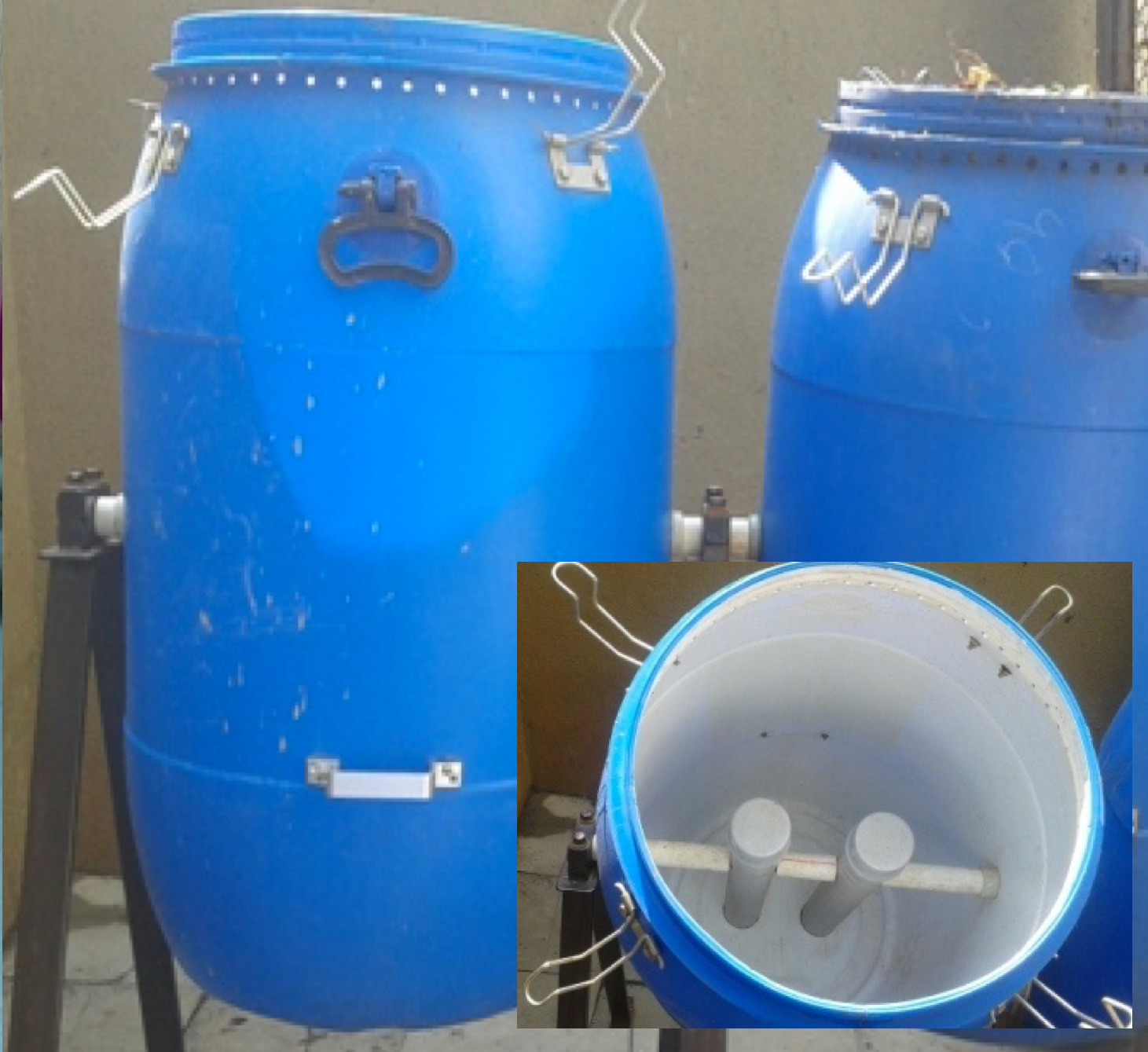
TUMBLERS
5 – 25 FAMILIES
On a strong stand made from a mixture of metals, a plastic drum is fixed, which can be smoothly rotated and used for making compost, this is a tumbler. These drums have a lid and can be closed and latched.
Two drums of 125 liters are enough for a community of 25 families. The wet waste is filled in on alternate days in the 2 drums and rotated. It takes about 8 weeks for the compost to be formed which can be used by the community for gardening.

FIBER REINFORCED POLYMER PITS
25 – 60 FAMILIES
These are made of fiber, are very cost effective and very reliable. These can be used in the cement pits made for converting wet waste to compost in the common area of the community.
Using metal frames, shape the pit like a big metal trunk, as shown in the pictures. The bottom has holes for excess water to drain out. These can be used for wet waste from 30 -60 kgs and can be used by communities upto 50 households. The size of the pits will vary depending on wet waste generated by the community.
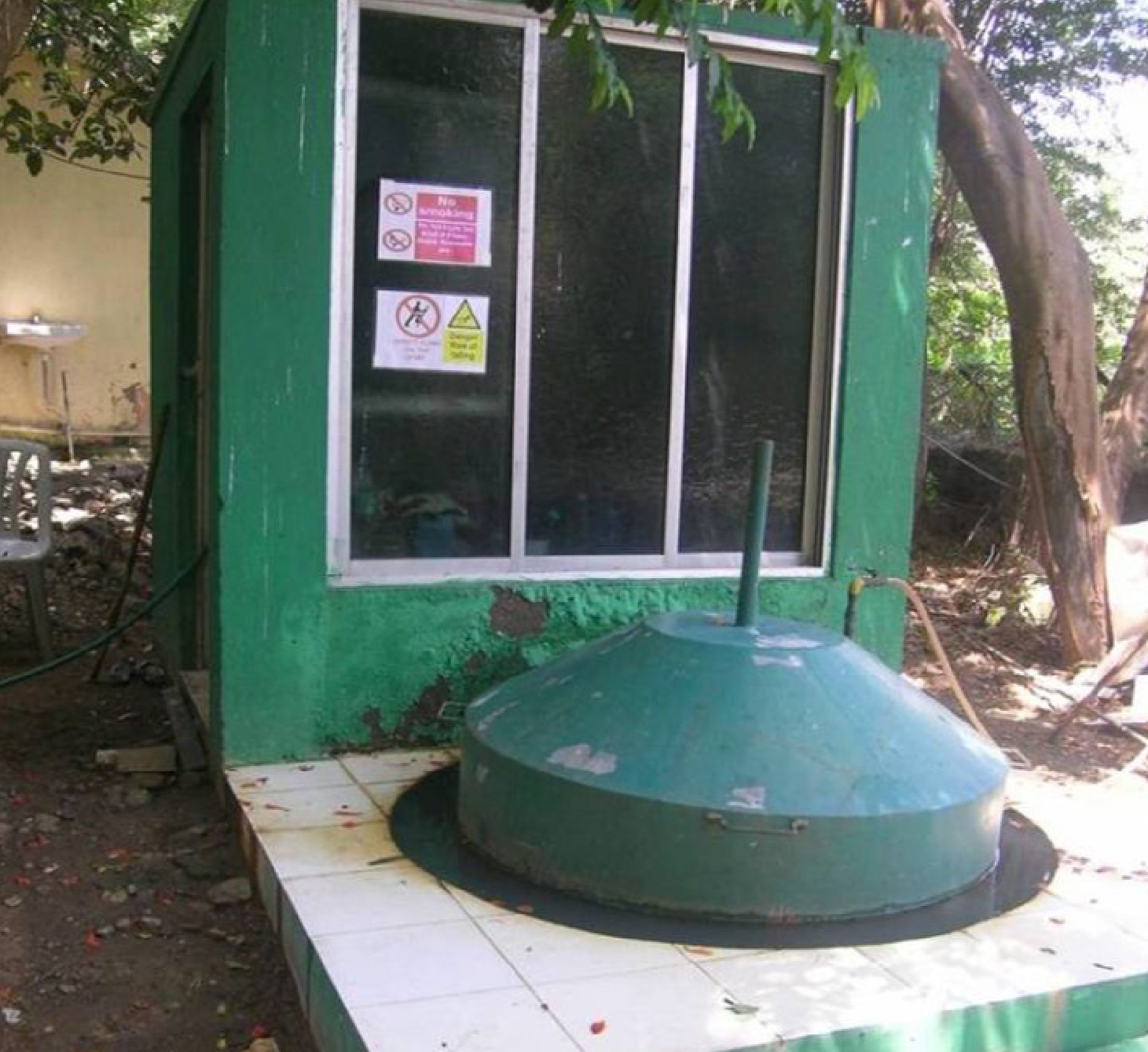
BIOGAS PLANT “NISARGARUNA”
100+ FAMILIES
Designed by Dr. Sharad Kale (B.A.R.C), this plant is constructed for very large communities. The plant capacity can range from 100 – 5000 kgs per day. The output of this plant is biogas which can be used for cooking and other purposes and manure which can be used in the garden as fertilizer. Larger plants (<2000 kgs per day) can be used for generating electricity.
SMS has implemented successful biogas units in TISS, TIFR, MCGL etc.

Dried Leaves Shredding Machine.
100+ FAMILIES
Designed by Dr. Sharad Kale (B.A.R.C), this plant is constructed for very large communities. The plant capacity can range from 100 – 5000 kgs per day. The output of this plant is biogas which can be used for cooking and other purposes and manure which can be used in the garden as fertilizer. Larger plants (<2000 kgs per day) can be used for generating electricity.
SMS has implemented successful biogas units in TISS, TIFR, MCGL etc.

